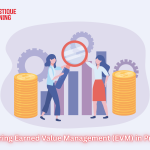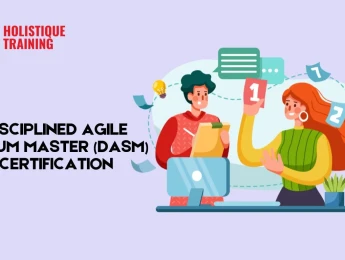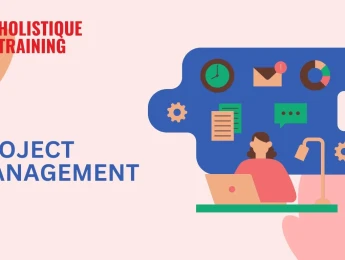This comprehensive course provides a practical and strategic understanding of Earned Value Management (EVM)—a vital tool for monitoring and controlling project performance. Participants will explore how to integrate scope, time, and cost data to assess project health and predict future performance with greater accuracy.
The course breaks down EVM concepts in a simple, accessible way, using real-world case studies and exercises to equip learners with hands-on skills. Whether you’re managing traditional, agile, or hybrid projects, EVM offers a structured approach to decision-making and performance tracking.
By the end of this course, participants will be able to:
- Understand the core principles of Earned Value Management.
- Calculate and interpret key EVM metrics (e.g., CPI, SPI, EV, AC, PV).
- Apply EVM to track project health and progress.
- Forecast project performance and identify risks early.
- Integrate EVM into both traditional and hybrid project environments.
- Communicate performance insights clearly to stakeholders.
This course is ideal for:
- Project managers and coordinators.
- PMO professionals and analysts.
- Engineers and technical leads.
- Finance officers involved in project budgeting.
- Anyone interested in data-driven project control.
This course uses a blended approach of interactive lectures, real-life scenarios, group exercises, and case studies. Concepts will be reinforced through problem-solving workshops and the use of templates and tools that can be applied immediately in participants’ workplace environments.
Day 5 of each course is reserved for a Q&A session, which may occur off-site. For 10-day courses, this also applies to day 10
Section 1: Introduction to Earned Value Management
- What is EVM and why it matters.
- EVM vs. traditional tracking methods.
- Benefits for stakeholders and organisations.
Section 2: The Key EVM Metrics Explained
- Planned Value (PV).
- Earned Value (EV).
- Actual Cost (AC).
- Cost Performance Index (CPI).
- Schedule Performance Index (SPI).
- Variance Analysis (CV, SV).
Section 3: Implementing EVM in a Project
- Setting performance baselines.
- Capturing progress and actual costs.
- Calculating and interpreting performance indices.
Section 4: Forecasting with EVM
- Estimate at Completion (EAC).
- Estimate to Complete (ETC).
- Variance at Completion (VAC).
- Making data-driven forecasts and decisions.
Section 5: EVM in Agile and Hybrid Environments
- Using EVM in iterative project models.
- Linking sprints and backlogs to performance data.
- PMI® study on EVM in hybrid projects.
Section 6: Tools, Software, and Templates
- Excel-based templates for EVM.
- EVM support in MS Project, Primavera, Jira.
- Custom dashboards and automated tracking.
Section 7: Real Case Studies and Common Pitfalls
- Project scenarios and EVM insights.
- Top mistakes in EVM implementation.
- Lessons learned from industry projects.
Upon successful completion of this training course, delegates will be awarded a Holistique Training Certificate of Completion. For those who attend and complete the online training course, a Holistique Training e-Certificate will be provided.
Holistique Training Certificates are accredited by the British Accreditation Council (BAC) and The CPD Certification Service (CPD), and are certified under ISO 9001, ISO 21001, and ISO 29993 standards.
CPD credits for this course are granted by our Certificates and will be reflected on the Holistique Training Certificate of Completion. In accordance with the standards of The CPD Certification Service, one CPD credit is awarded per hour of course attendance. A maximum of 50 CPD credits can be claimed for any single course we currently offer.
- Course Code PO4 - 149
- Course Format Classroom, Online,
- Duration 5 days













